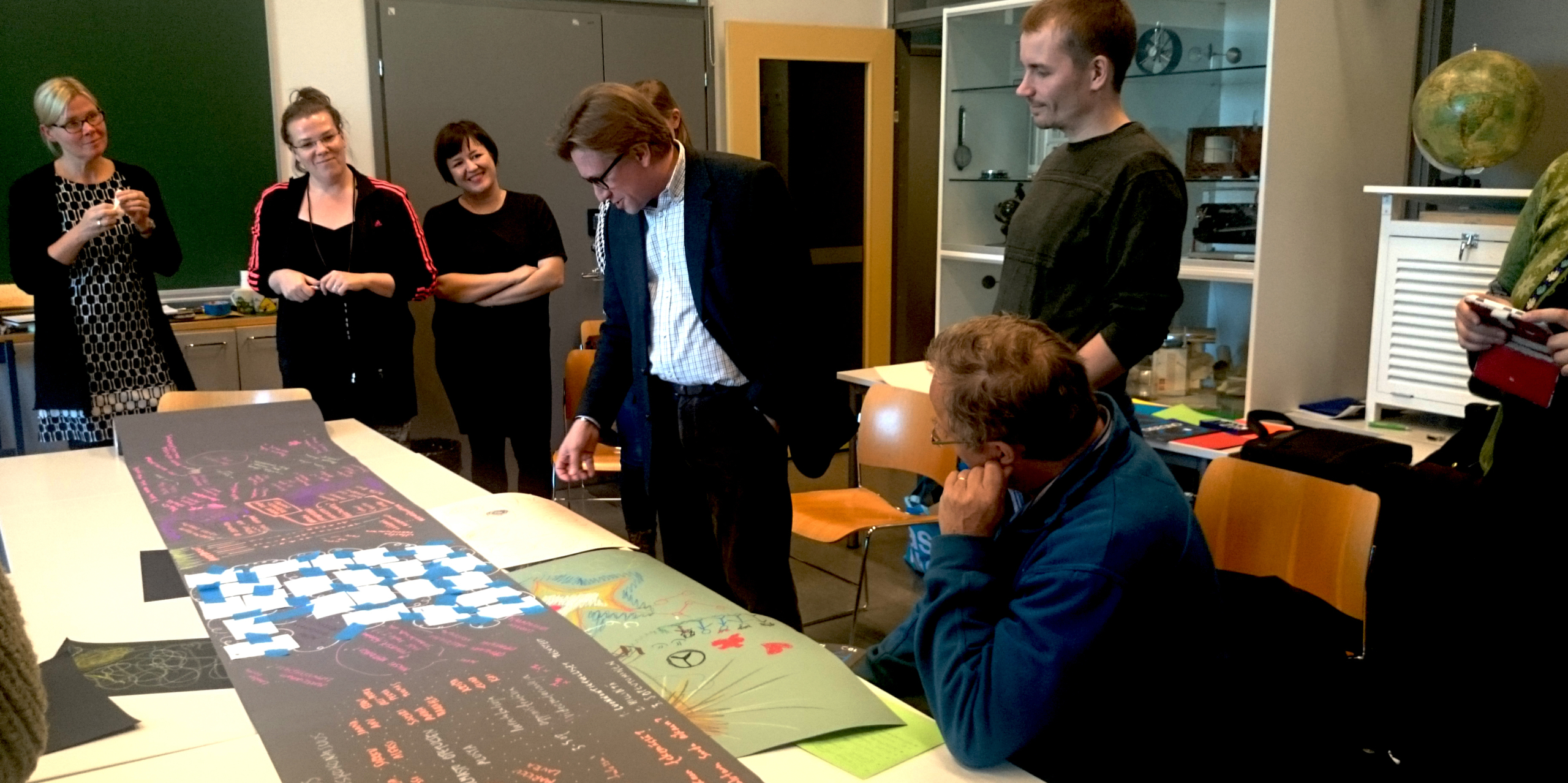Climate change is bringing us face to face with our planetary limits. We have internalised the role of the consumer, under the illusion that there are no bounds to our consumption and growth. The attitudes and practices we are accustomed to disregard the ecological framework of life and must change. Our prevailing attitude – do not worry about the future because that would be too depressing or difficult – poses an enormous educational challenge among all age groups.
The issues of a sustainable future and well-being need to be discussed from the viewpoint of education and learning. Climate education is a concept that emphasises the acute need for change; it also focuses on specific, change-related issues and understanding the phenomenon involved. We cannot leave it to future generations to solve the problem of climate change. There is a huge need for adult education and continuing education (see the Finnish Climate Panel’s report 1/2015 Climate education as the basis of expertise and responsible citizenship – in Finnish).
Adapting to and mitigating climate change will require major cultural and social changes, affecting all aspects of society. As a specialist in climate education, I am taking part in Sitra’s development project concerning climate change expertise in higher education. Together, we are developing online materials for an introductory course on climate change, accessible to all. While doing so, we are dealing with the special challenges of climate education. What types of knowledge and expertise are needed in a reality dominated by the issue of climate change?
Climate change is a wicked problem – it is difficult to understand and resistant to quick fixes. We need more than rational, linear knowledge and technical solutions to overcome climate change and successfully implement the cultural transformation it requires. What we need is a holistic approach to reality, systemic thinking, the ability to see connections within a compartmentalised society and, in our divided globalised world, to understand differences.
Climate change stirs up difficult emotions, such as fear, guilt and inertia. We must provide room and outlets for these feelings and contemplate what they mean to each one of us; otherwise, they will prevent us from learning. Our attitude towards climate change is influenced by social interaction.
Climate education must be communal, a co-learning process. In dialogic interaction, all participants contribute to the discussion on the basis of their personal experiences, while presenting a range of viewpoints.
To be effective, the communal learning process must leave room for personal contemplation, for challenging our way of thinking and prevailing cultural attitudes, and for creative co-operation and the development of something new.
A proactive attitude, taking responsibility and expertise can only be learned through practice. Hopefully, the dam of rejection, stagnation and apathy will be opened by our experiences of real, positive change and by a community supportive of bold and responsible decisions. The opportunity to play a role in resolving climate change will free us from the anxiety it causes, as well as helping us to build a positive identity and responsible expertise.
Climate change is a positive opportunity for change!





Recommended